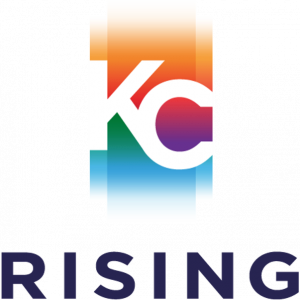Editor’s note: The following story was sponsored by KC Rising, a regional initiative to help Kansas City grow faster and more intentionally, as part of a campaign to promote its CEO-to-CEO Challenge on supplier diversity.
It’s all about the ripple effect of outcomes, said Paul Kempinski, diagnosing the community health potential (and business case) for supplier diversity efforts. Corporate leaders just need to connect the dots.
“The more we advance our efforts with supplier diversity, the more it will catalyze innovation — as well as bring the opportunity to engage with those who don’t have equal access in the community. The goal is for economic prosperity to be shared,” said Kempinski, president and chief executive officer of Children’s Mercy Kansas City.
CEO-to-CEO Challenge
The CEO-to-CEO Challenge is powered by Connectus Worldwide, KC Rising and KCSourceLink in collaboration with the Civic Council of Greater Kansas City and the Greater Kansas City Chamber of Commerce.
Click here to take the challenge.
Children’s Mercy recently pledged its commitment — alongside 11 industry-crossing, major Kansas City-based corporations — to KC Rising’s CEO-to-CEO Challenge, an initiative encouraging corporate CEOs to increase spending with diverse small businesses.
Click here for a full list of the Kansas City companies that joined the CEO-to-CEO Challenge’s first cohort.
Investing in supplier diversity reflects the mission and strategic plan of Children’s Mercy, Kempinski said, noting the efforts will bring a long-term, widespread impact to the organization.
“When we connect the dots ever further as a children’s health organization, increasing supplier diversity will ultimately improve the quality of life for the families and children who are a part of these organizations that represent supplier diversity,” Kempinski explained. “It not only ties into our efforts and our obligation to be part of the community of leaders in diversity, equity and inclusion — but longitudinally, it ties into improving the quality of life and health status of citizens, especially children, in the community, which is aligned with our mission directly.”
The team at Husch Blackwell, another local company that joined the CEO-to-CEO Challenge early, has found that one million-dollar contract can significantly impact a small supplier in ways that large distributors cannot compare, said Jeff Simon, the office managing partner at the law firm’s KC headquarters.
“It’s a matter of putting your money where your mouth is,” Simon said. “Smaller businesses don’t get the same sort of arrangements and discounts from the manufacturers that some of the larger distributors do; but if all we’re going to do is try and find good quality at the lowest price, we’re not going to make much of a difference. … We have to be willing to spend a little more in order to do something meaningful. We have to want to be a part of changing the community.”
Increasing supplier diversity efforts will also benefit companies that have recently experienced challenges in the supply chain, Kempinski added.
“The timing has never been better when you think about the enormous supply chain challenges that we face in the community,” he said. “The opportunity to diversify our supply chain in our immediate time will help us gain access to everything from materials, services, intellectual property and so forth.”
An incremental approach
The CEO-to-CEO Challenge pushed Husch Blackwell and Children’s Mercy — and a majority of the pledged corporations — to deliberately think about supplier diversity and its outcomes, leaders acknowledged.

Save the Date
KC Rising’s annual Horizon celebration is planned for 4 p.m. May 11. Click here for tickets to the in-person event.
“[Children’s Mercy] decided, based on our conversations and on conversations with others across the country, to start off slowly — but intentionally,” Kempinski shared. “We wanted to make sure that we actually made an impact, and that we could measure that impact to the best of our ability.”
Children’s Mercy identified which departments would be the most logical places to start and began supplier diversity efforts in environmental services, information systems and construction and facility areas, Kempinski recalled.
“We were able to start working on some, what I would call pervasive, foundational elements — looking at our internal policies that guide supplier diversity and how we select contractors and how we establish goals and metrics to ensure meaningful progress,” he continued. “… Our goal is to grow our spending year over year.”
With supplier diversity being a multi-faceted initiative, leaders can become overwhelmed on where to start. But that shouldn’t prevent someone from taking a step, even if it’s a small one, Simon advised.
“It could look like, if you’re having a department lunch tomorrow, don’t cater from the same place you have been catering from the last few years,” he suggested. “Explore parts of town you’ve never purchased from before. That’s a very easy, small first step, but you will begin your journey of doing things differently — and you’ll get some mighty fine food out of the deal.”
Click here to read about how to boost diverse small businesses without tokenizing them.
Outreach builds momentum
Both the Husch Blackwell and Children’s Mercy teams have felt the pain point of sourcing diverse suppliers, but that has not prevented them from reaching out, they noted.
Mountain Plains Minority Supplier Development Council (MPMSDC) is a network of minority suppliers who have organized to promote themselves and gain access to a larger market. The network has been a valuable resource for Husch Blackwell, Simon shared.
“We have worked with Marvin Lyman [business development and corporate services manager at MPMSDC] to identify who are the members of the network that could fit the profile we need,” Simon said. “Marvin is here in Kansas City and is instrumental in an organization that does great work.”
As an individual or corporation continues outreach for diverse suppliers, the awareness spreads, and suppliers begin reaching out to the corporation, Kempinski said.
“Last year we used 40 diverse suppliers; when we do that outreach, that creates momentum and word spreads throughout the community that Children’s Mercy is genuinely interested in engaging with diverse suppliers,” Kempinski noted.
“Once there is measurable success and meaningful impact resonating inside your organization, it will also resonate outside in the community,” he continued. “To me, that breeds relationships, further collaboration and shared economic prosperity that will have longitudinal impact in the community and, in our case, in the children who we serve.”
Interested in taking the CEO-to-CEO Challenge? Click here to sign up for the pledge.







































